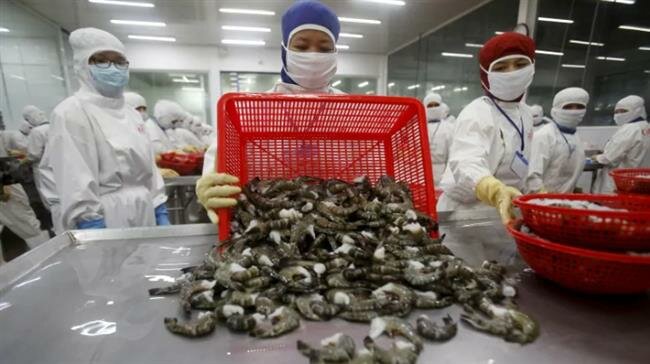The ban came after Chinese customs detected white spot syndrome virus (WSSV) in a shipment of shrimp, China’s industry publication Foodspath said.
Citing an industry source, it said Chinese customs implemented the ban “to prevent the disease from entering China”.
The ban was followed by market access being granted to Iranian shrimp exporters, including Daryazad Seafood Products which is headquartered in Bushehr province, producing raw processed and value-added shrimp products.
China is the largest market for Iran which exports some 30,000 tonnes of shrimp a year, London-based global seafood news website Undercurrent News reported.
Iranian veterinary authorities said China endorsed the exporters after they met Chinese laws, regulations and standards, paving the way for direct shipments.
Iran’s exporters have relied on sending shrimp to China through Vietnam in the absence of official export approval. Exporting through Vietnam has become more challenging, however, due to a crackdown in transshipment by Chinese authorities, Undercurrent News reported.
Minister of agriculture Mahmoud Hojjati said in June shrimp production in Iran had quadrupled to 50,000 tonnes over the past five years.
Iran seeks to use aquaculture potentials along its southern coasts to make seafood a main item of export.
It exported some 22,000 tonnes of shrimps worth around $150 million in the last Persian year which ended in March, government officials showed. It has set a target to raise production to 60,000 tonnes by 2021.
The country is carrying out joint projects with several countries, including France, to boost seafood production. A senior Iranian official once said China planned to invest $3 billion in Iran’s fisheries.
On paper, US sanctions on Iran do not target food and agricultural goods but restrictions on dollar-based transactions make trade with the country virtually impossible.
The program has reserved a special niche to production of caviar, a prized delicacy that can fetch more than $100 an ounce.
Iran is traditionally known as the origin of premium caviar, long reserved for royal courts and the gentry. Each kilo of farmed caviar sells for $1,500-$1,600 in the market.
The number of sturgeon aquafarms has been rising amid a ban on sturgeon fishing in the Caspian Sea where the world’s best caviar-bearing fish thrive.
China, where the number of high net worth individuals in China has risen nearly nine times since a decade ago, is an ideal new destination for the Iranian “black gold”, as the delicacy is often referred.
